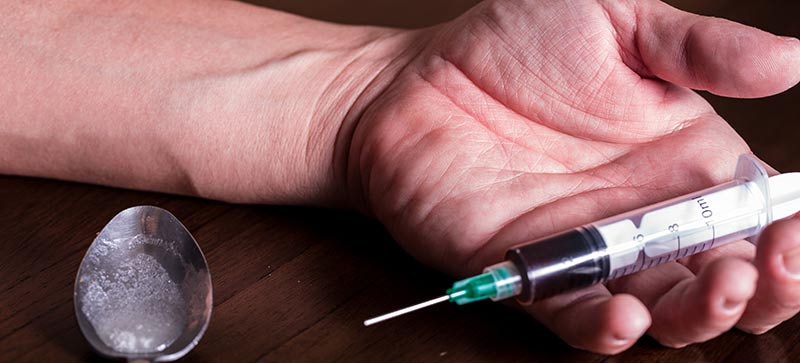Drug Addiction FAQs
What is drug addiction?
LPP describes drug and other addictions as:
a state when we create an experience through behavior and/or substance(s) use that becomes compulsive, so that we continue to pursue it in spite of harm to ourselves or others.
The cycle of addiction occurs when we rely on the thing that is hurting us, even believing it is helping us emotionally. We then separate from other activities and interests to focus on and protect that addictive experience.
In this way, drug use and other involvements can escalate to become full-blown addictions that control our lives.
How do I know if I have a drug problem or an addiction?
The measures we rely on to detect “substance use disorders” (SUDs) are mostly behavioral. Some people feel that any use of illegal drugs or drugs not taken under prescription is itself a problem. But the same criteria of relying on a drug, or behavior that has negative life effects, applies no matter in which form or manner you take or receive the drug.
For the most part, if you are taking a prescription drug prescribed by a doctor, and you are not having any issues with it, you should be fine. IF you find yourself liking the effects of the drug BEYOND its medical purpose, and turning to it for emotional or personal reasons, you need to be cautious.
The definitive US psychiatric diagnostic manual, called DSM-5, categorizes substance misuse for 10 specific substances and one “other” category. In addition to causing life problems, substance misuse includes disorders resulting in repeated intoxication or drug-induced states resembling mental disorders.
DSM-5 defines SUDs as follows:
“Substance-use disorders are patterns of symptoms resulting in the use of a substance that you continue to take, despite experiencing problems as a result.”
If you use the drug outside the boundaries of the prescription because of feelings it produces for you, so that you use a greater amount or take it more frequently than prescribed, this is a danger zone. At that point, you already probably feel uncomfortable about what you’re doing and are wondering if it’s a problem. Follow your instincts.
Will I suffer from withdrawal if I stop taking drugs or meds?
That depends on what and how much you have been taking, for how long, how critically it affects your feelings and life, and how much you rely on it.
Our bodies tend to react to change, so anyone might experience symptoms of distress or even physical discomfort when making a change to routines. These reactions, in addition to the specific biological effects of stopping use of a substance, can produce notable withdrawal experiences, ranging from mild to severe.
Opiates depress the nervous system. Although opiate withdrawal has long been portrayed as a horrific, almost unbearable condition, most people readily weather these effects. How severe your reaction is relates to your general health, your surroundings, the support you have while withdrawing, and your overall life outlook. Unless you have preexisting conditions, mild withdrawal is usually asymptomatic and, while you may feel weakened and bad, usually presents little real danger.
Stimulant drugs like cocaine, methamphetamines, and Adderall have a different withdrawal profile since their effects are more intense and short-lived.
During withdrawal from stimulants, people may feel depleted, possibly ill, for a matter of days or sometimes weeks. They may experience symptoms like headache, sinusitis, irritability, sleep issues, etc. upon stopping, which is also true for opioids.
Some depressant drugs, like alcohol and tranquilizers, require caution in case withdrawal elicits dangerous physical effects requiring medical supervision and treatment.
Tapering use over a period of time before stopping is recommended with all depressant drugs, including tranquilizers and medications prescribed for stress, such as Valium, Xanax, Klonopin and Ativan (and their generics) as well as sleeping pills.
Antidepressant withdrawal may produce physical symptoms and extreme mood reactions. Although these are not typically drugs of abuse, for those who depend on them, it is important that they reduce doses slowly and steadily, preferably with the advice of a physician.
How does someone become addicted?
Addiction happens when the person starts to use and rely on the experience they get from a drug to fill unmet needs — human essentials like connection, love, comfort, sense of identity, positive feelings or to cope with uncomfortable or frightening situations and feelings. Then, the addictive drug or other involvement may become a primary force around which the person organizes their life. It may even start to take precedence over the people and activities that comprise the person’s normal life.
There is a vast range of severity from none right on up to all the scary images we carry in our minds about drug use. But most people who take drugs do not fall into a permanent addictive pattern with them. That is, they often taper down and quit out of natural corrective forces they face, like their own bad feelings about their behavior, disapproval from those close to them, and other negative consequences.
A recent attendee at one of Dr. Peele’s seminars expressed that she didn’t become addicted to pain medication when prescribed “Because I had other things to do.” In other words, being mindful of the full range of one’s activities, obligations, and pleasures is a principal safeguard against addiction.
That’s the bottom line. We use drugs or addictive behaviors like gambling or eating to fill in for truly meaningful experiences and relationships. By focusing on those healthy experiences and relationships in the real world, we can push back against addictive tendencies.
Of course, it may be hard to break some of the negative life associations that encourage addiction in order to carve out new ways to enjoy life.
Programs based in psychology and sensible, well-established science-based techniques can help us:
- Examine our thinking and life experiences
- Question and refine what it is we want from life
- Look at how we are going about getting what we really want
- Set realistic goals for ourselves
- Provide support and encouragement
The vast majority of people correct addictive tendencies naturally, over time. When problems become severe or we feel stuck a sound, reasonably priced program, can make a big difference!
Can a person become addicted to medications prescribed by a doctor?
Yes, it is possible to become addicted to prescription drugs, but uncommon. Doctors are well versed in standard dosages and are alert to escalating use or urges to use. You of course need to be honest with your doctors, including in cases where you feel that you need more of a medication. You should never go outside your primary prescribing physician to seek additional supplies of a drug. When people use medications in order to treat the “difficulties” of ordinary living, then that is a different type of risk.
Why does an addicted person change so much?
Drugs create impairments of various kinds, including in judgment. Getting one’s drug can become an obsession. Whether because of the promise of pleasure associated with it or the relief from escaping pain/discomfort/life problems or in order to prevent withdrawal, the urge to use can be so great that real world rewards pale by comparison.
Since the drug can provide predictable, regular reinforcement, it can become the person’s most ready go-to experience. When caught up in the drug experience (the “high”) or obsessed with drug seeking to chase that high, all else can fall by the wayside. People begin to feel as though the drug is their life-and-death purpose, where nothing else matters. They then sacrifice everything else in their lives to use the drug.
This leads to the worst type of bottom-line addiction. However, even here, it is important to remember that there is always hope. People can change. People make decisions every day to put aside their drug use, and people get better every day. Addiction need not be, and usually isn’t, a permanent state.
Over the years, Dr Peele has responded to hundreds of readers questions about drug addiction. Links to some of these questions can be found below:
- Is my adopted baby doomed by her mother’s drug use?
- How does social class affect drug abuse?
- Why do those middle class women take cocaine?
- Why are crack babies so screwed up?
- Why can’t people just stop using drugs, and should addicts be maintained on drugs?
- Court-Ordered Treatment for Drug Offenders is Better than Prison: Or Is It?
- Can I use marijuana and cocaine as antidepressants?
- Will I relapse to depression after quitting Prozac?
- Who is responsible for heroin overdoses?
- Can people use narcotics safely, even with benefits, for years?
- Is taking cocaine occasionally less dangerous than using it on a daily basis?
- Prescription Drug and Addiction Myths








